All products featured are independently chosen by us. However, SoundGuys may receive a commission on orders placed through its retail links. See our ethics statement.
Best portable music players
April 14, 2025




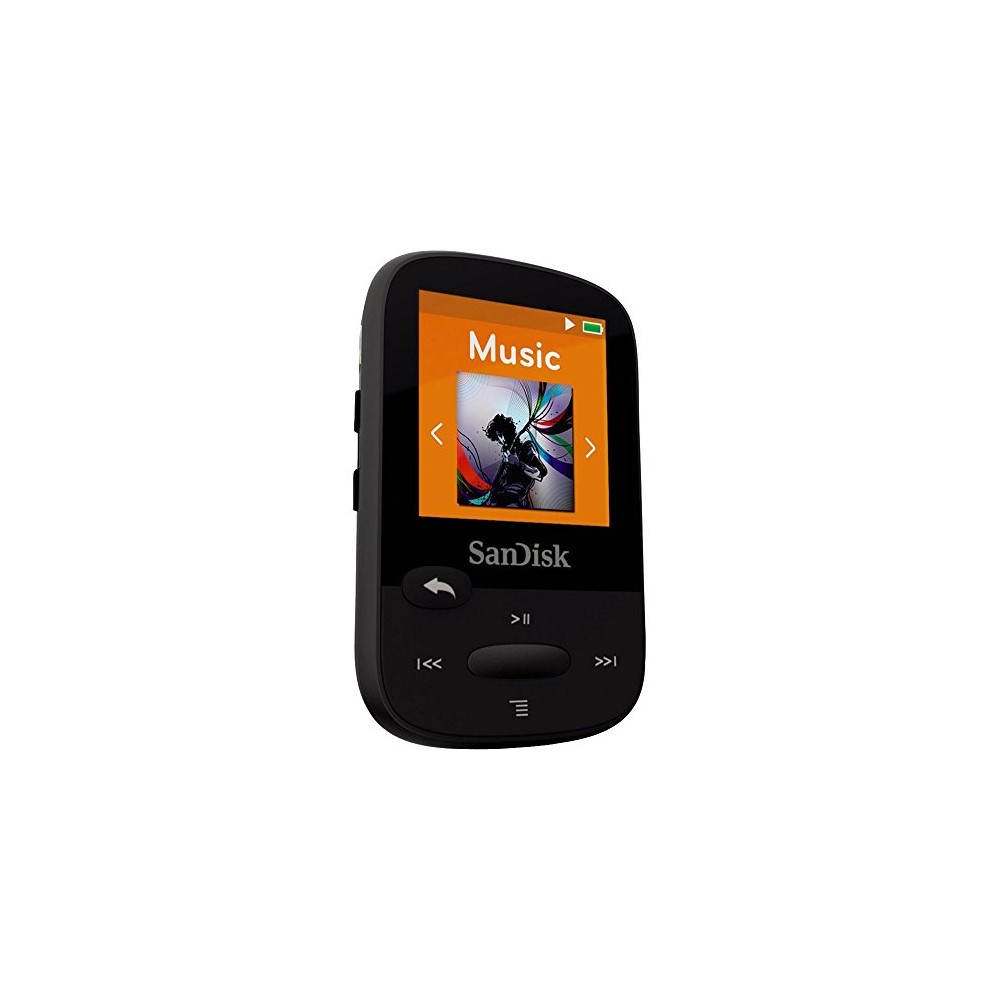
Though it’s a rare thing to need, a portable music player is something you might find yourself in the market for. Whether you’re looking to replace your smartphone or Bluetooth speakers as your music source or just looking for an integrated amp and digital-to-analog converter (DAC) stack that you can take with you, portable music players are the best they’ve ever been—even if their widespread appeal is all but gone.
- This article was updated on April 14, 2025, to include new top picks, add an FAQ section, and adjust formatting to our current style.
The FiiO JM21 is the best portable music player for most people
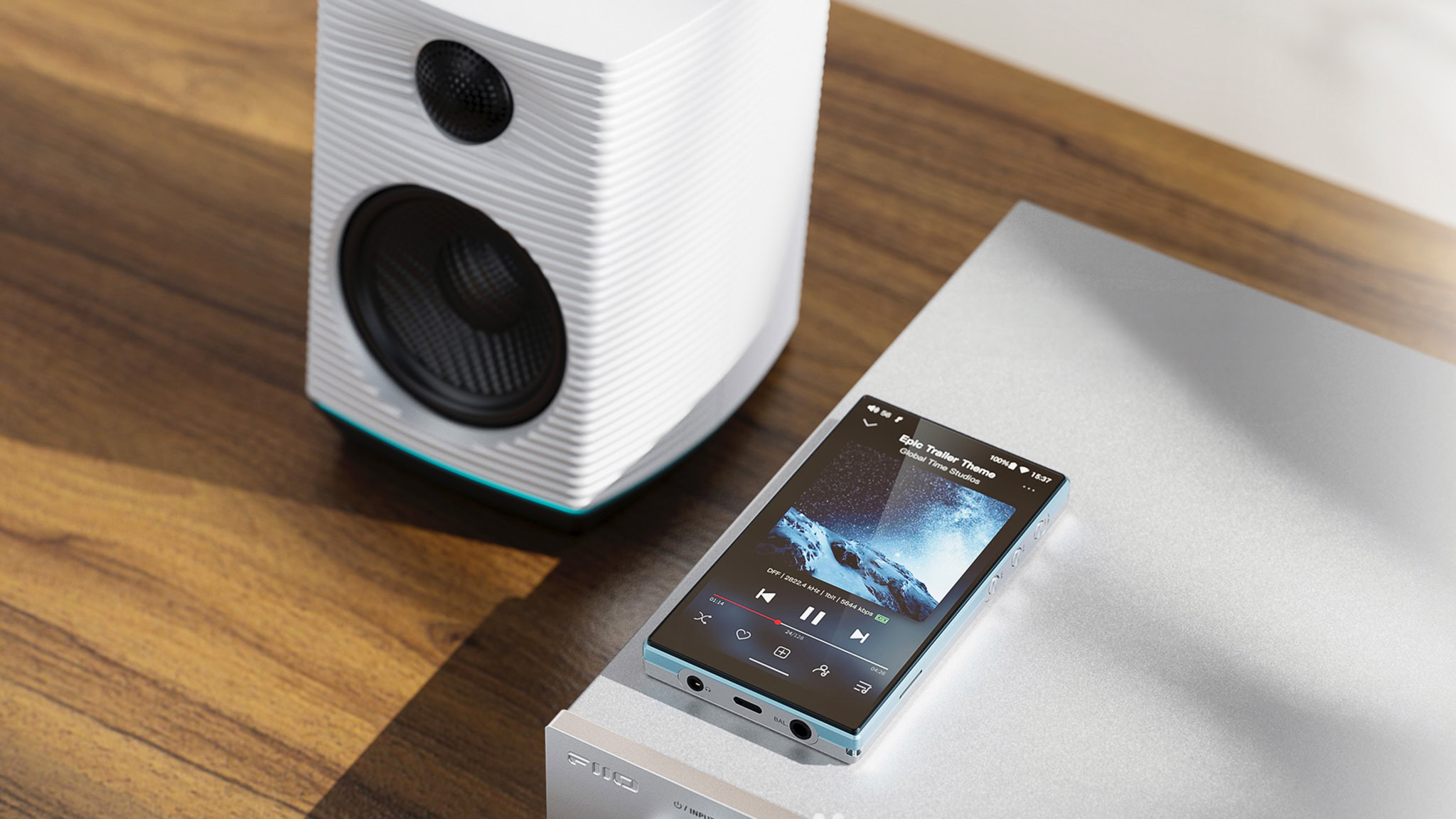
Considering that most portable music players are largely specification-driven and aren’t very complicated once you’ve identified what you want, the FiiO JM21 has the most bang for your buck on the market today. The JM21 offers good battery, wired and wireless options, and Android 13 for the ability to use your favorite streaming services.
FiiO’s options here are generally the best options with the most value you can find under $1000. The main reason you’d want something else is if you really desperately needed higher power output than the JM21S can offer, and that would mean making tradeoffs in the price or features department.

Why is the FiiO JM21 the best portable music player for most people?
Paying many thousands of dollars for a portable music player is often only going to get you very small improvements at significant cost, so we’re going to advise you not to do that. While the FiiO JM21 might not be everyone’s cup of tea, it does tick all the boxes for a good portable audio player that can also handle pretty much anything you throw at it (including most streaming services). To be clear, this is a unit that isn’t going to be a perfect match for all headphones; it’s just the right tool for most of them.
FiiO does a pretty good job of making the most of the components crammed into this unit, while it doesn’t provide a global parametric equalizer to customize your sound to your liking, most audio apps have built-in equalizers. Additionally, you can use this unit as a stand-in for a DAC and amp for your computer. It also has 3 output levels you can choose from. The JM21 is an easy recommendation. This unit will satisfy the vast majority of use cases that even a highly demanding user would throw at it, save for waterproofing or ultra-high output.
If you’re using headphones that require more than a watt of juice to reach an appropriate level, you’re going to want to look for something else. Just like any other portable audio player, you need to match your needs to the right product first. However, unless you’re running super-insensitive planar magnetic headphones or some ultra-boutique options, chances are extremely good that you don’t need a super-high output source. For most people, that makes the FiiO JM21—the cheapest portable music player that has all the best features music players can offer—the best portable music player.
We decided against the FiiO M23 because the upgrades it offers aren’t worth the extra spend, unless you’re deep in the audio rabbit hole. Stacking extra output power and a larger battery is notable. Still, considering the JM21 already has a decent output level and battery, you’re not likely to notice much change unless you have super power-hungry headphones.
The Cayin N6 iii is the best premium portable music player
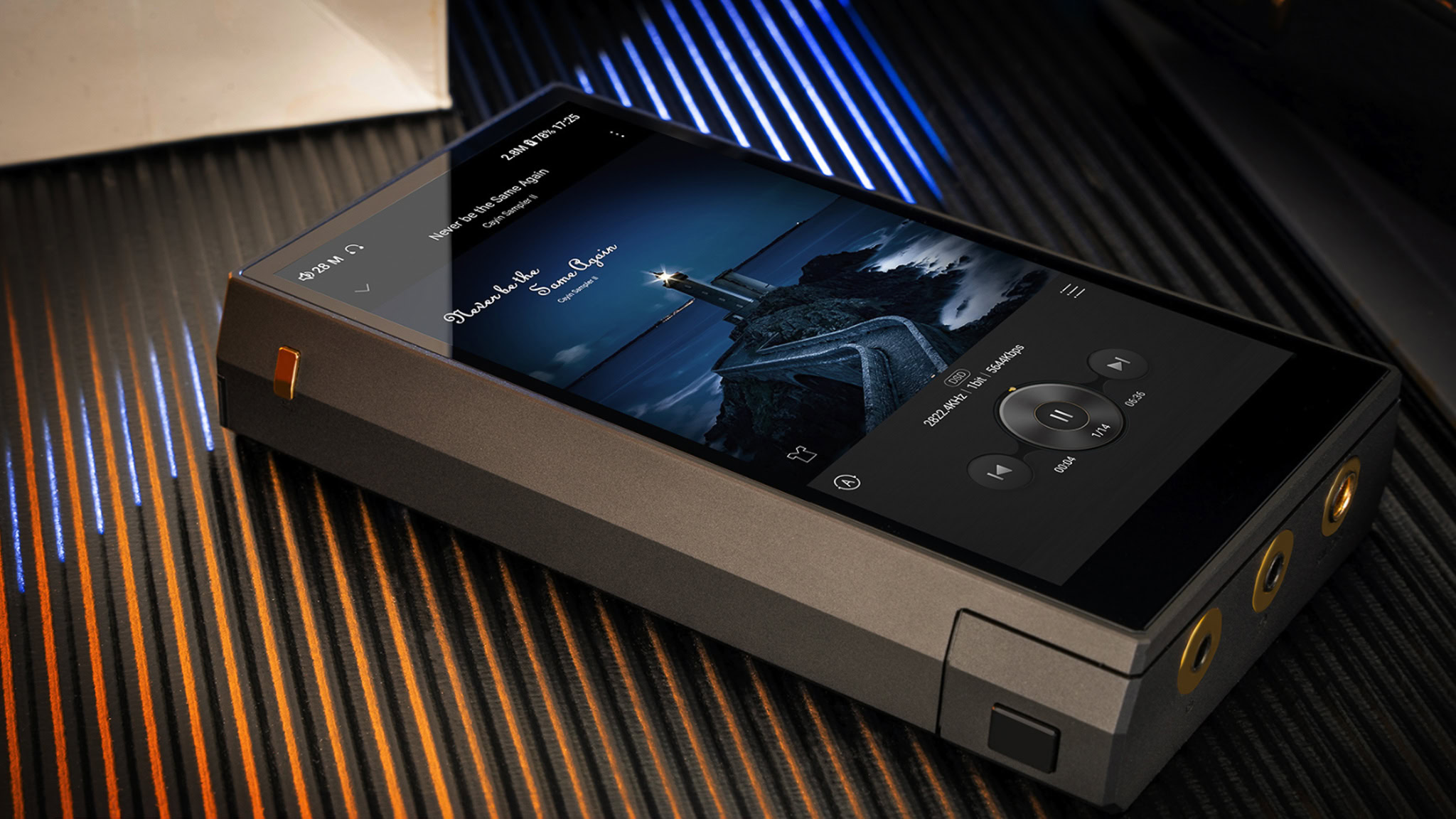
For the cream of the crop premium pick, with a low noise floor, consider the Cayin N6 iii. Using multiple modules, you can use even the most sensitive IEMs or drive even hard-to-power headphones. The versatility makes it one of the best picks for what is effectively a portable desktop Digital Audio player.
There are 2 modules that you can start with, the first one is included, but you’ll have to get the second one at an extra cost. Swapping between the modules doesn’t require any tools. The C201 DAC module is meant for critical listening with its incredibly low noise floor. With three different outputs, a 4.4mm balanced out, and two 3.5mm jacks for phone and line outputs, moving to the E203 DAC module is meant for gear that requires more power to get the most out of it. You can even switch between Class A and Class AB power stages. This module has a 4.4mm balanced output and a 3.5mm single-ended output.
The Cayin N6 iii is the best if you want a versatile audio experience with a small footprint. It doubles as a proper desktop DAC with the USB-C connection on top of the device. You can then leave it on your desktop without a cable snaking out onto the desk. Whether you lack the space for a dedicated DAC or are looking for an all-in-one solution on the go, despite the price, it’s hard to find a better option in the high-end.

If you’re on a budget, get the Shanling M0 Pro
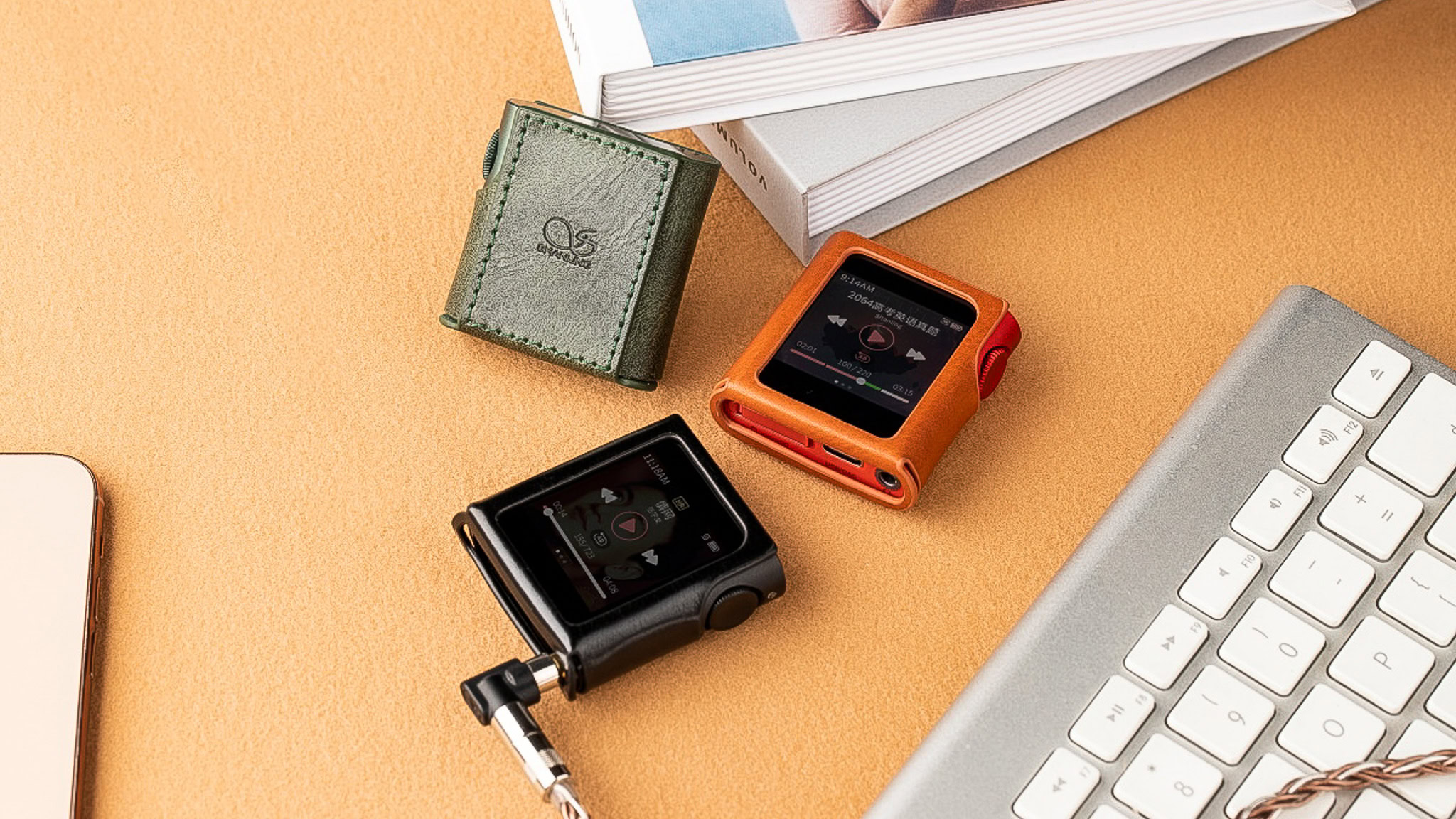
Even if you don’t have a ton of cash to burn on this endeavor, you can get pretty much everything you’re looking for in a portable music player at a fairly “low” cost. The Shanling M0 Pro is an unassuming square-shaped device that reminds me of an iPod nano from 2010. Damn, I’m old. However, it does tick all the boxes you could want in a portable music player outside of raw power. If you need a unit capable of higher output, you’re better off looking at devices in a higher price bracket.
This portable audio player might be tiny, but it offers FLAC playback, LDAC, expandable storage up to 2TB via microSD, and obviously a headphone jack. There is an odd upgrade option for the M0 Pro if you decide you’d like to have balanced output, but it comes in the form of a special 3.5mm to 4.4 mm adaptor at a separate cost.
While this may be the “best” in the budget category on paper, what you’re saving in money, you’re spending with inconvenience. You’ll have to find and fill in your SD card with music you own. Manually look for tracks. Fidget with small controls. But once you’ve smoothed out these rough spots, you can use the M0 Pro as a headphone amp/DAC for your computer, a Bluetooth receiver , or just the thing you bought it for — a portable audio player.

Need power? The iBasso DX180 has you covered
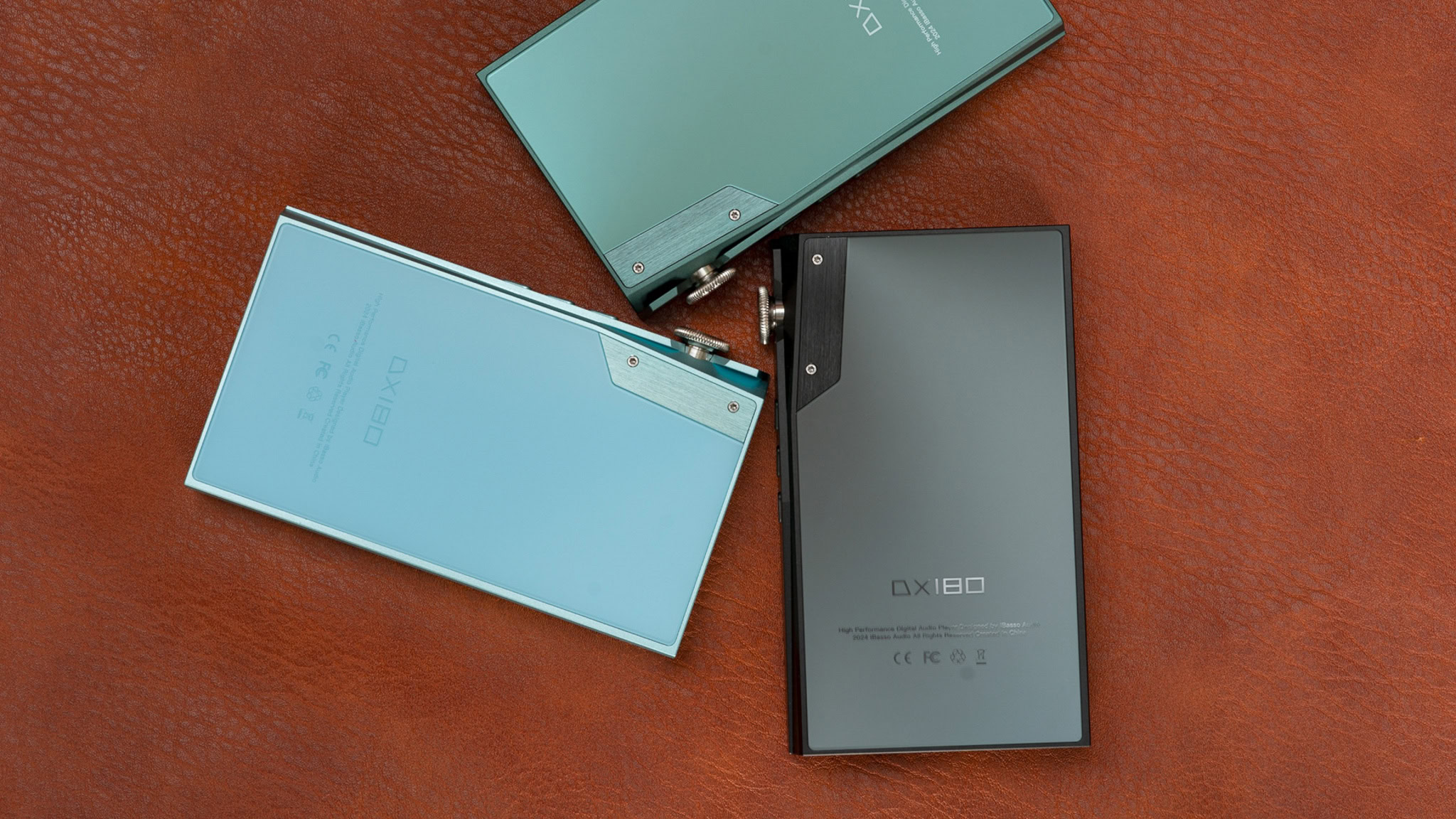
While it doesn’t have the same “everything but the kitchen sink” approach as the FiiO, the iBasso DX180 has a lot of power under the hood. The iBasso DX180 has one of the highest output levels on this list. That makes it a good match for someone who needs more power and a low-noise floor. One of the quality of life upgrades is the USB-C connection on the top of the device. This allows you to have a clean setup without having cable clutter all over your desk. When you’re ready to take it on the go, if you’re already on an Android device, you’ll be quite familiar with the Android 13 OS it’s rocking. The downside is that there are some complaints about the pre-installed music player. Despite having a lot of power, they power most hard-to-drive headphones, but might struggle a little on the hardest-to-drive headphones. Those are the exception, not the rule. You’ll be unlikely to find yourself in that situation.

The SanDisk Clip Sport Plus is a good gym buddy
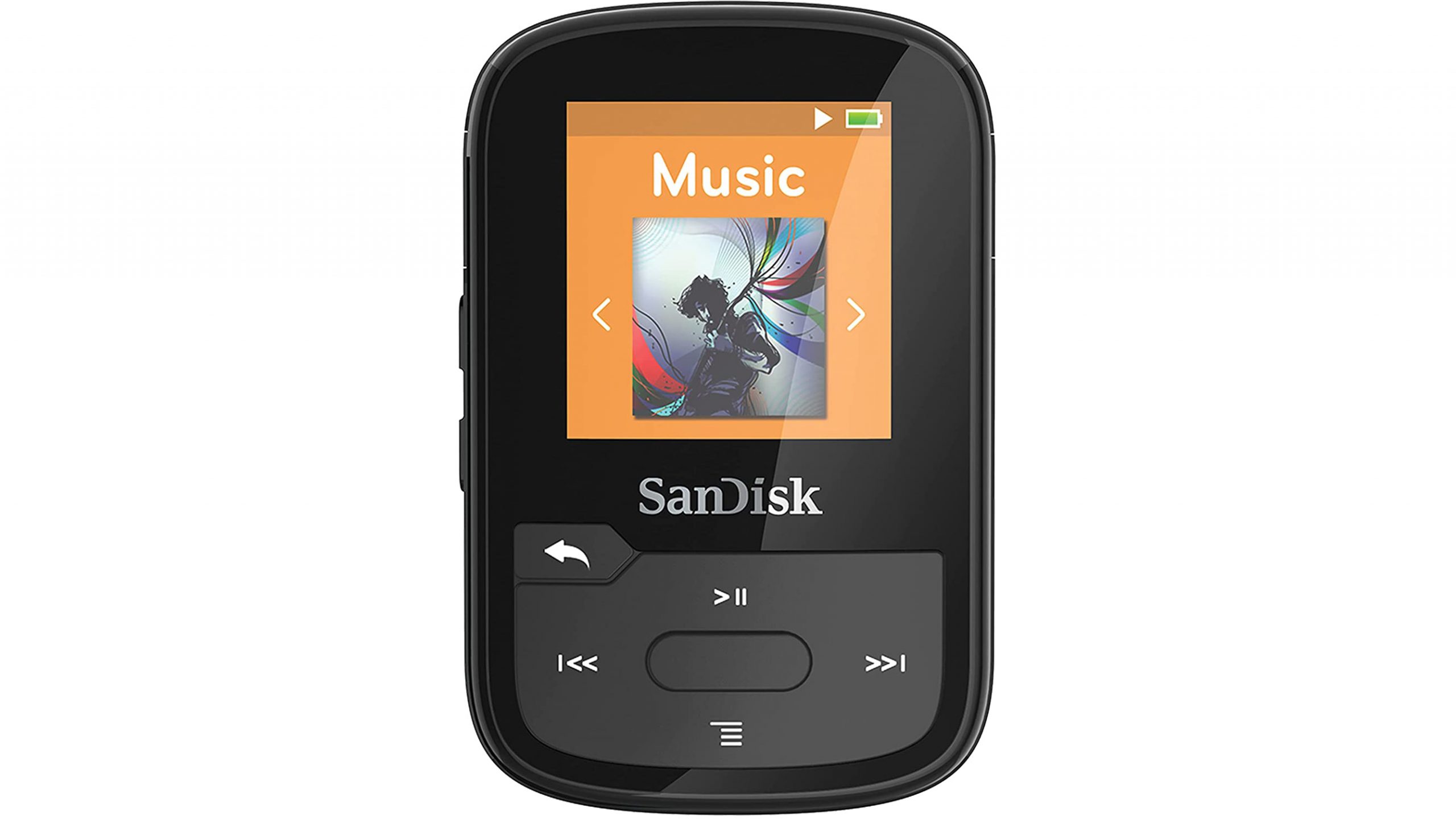
Of course, if you don’t need a lot of power, maybe you just need a bog-standard MP3 player like the old days. That’s where the SanDisk Clip Sport Plus comes in. This little fella can clip onto your shirt or armband and store 32GB (there are smaller models, too) of tunes for your workout. Additionally, it’s sweat-resistant with an IPX5 rating.
While it’s quite a bit cheaper than the other entries here, the SanDisk Clip Sport Plus isn’t exactly aimed at someone looking to replace a computer or a smartphone for their tunes. This is a product to remove all thought necessary for someone who just wants to use the earbuds or headphones they always work out with, and now needs a solution with a headphone jack. There’s no card slot, there’s no high-power amplifier, and there’s definitely no streaming support from any of the main music streaming services. However, as this product is a great deal less expensive than a phone (not to mention less of a tragedy if it breaks), it’s a good companion for a workout.

What makes a good portable music player?
It’s rough to admit, but the MP3 player is a bit of a relic of the past. If you want a portable music player, chances are the actual things you need it to do are fairly limited in scope and easy to accomplish. Consequently, this is one of those products that you can absolutely just check for the things you want on a specifications page and simply grab whatever suits your needs. There’s no right or wrong DAC chip to get—just whatever works for your needs and budget.
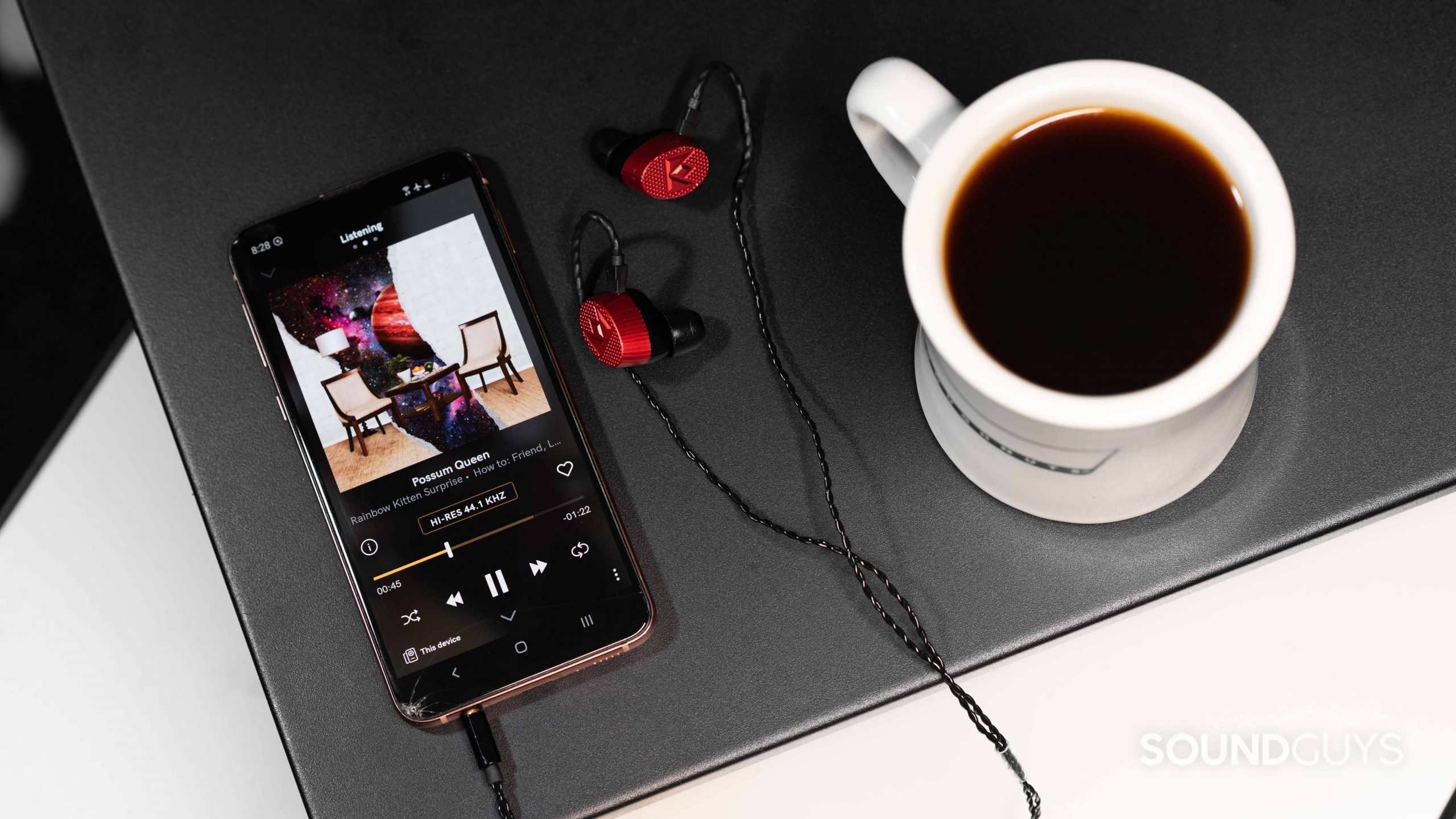
A portable music player won’t need to stand in as your primary entertainment device, so you really just need something with a headphone jack, decent battery life, and the ability to store your library of music.
What questions you need to answer
Here’s the info you need to track down before buying a digital audio player:
- How much power do you need?
- What formats are your tunes in your library?
- Do you need access to a streaming service? If so, you’re going to need a player with Wi-Fi (or perhaps even a fork of Android).
- What headphone connection do you need? Do you want a balanced output?
Nice upgrades are going to take the form of things like an expandable memory slot (microSD) or Bluetooth connectivity over advanced codecs like aptX or LDAC. Additionally, you may see different DAC chips from companies Texas Instruments, Sabre, or Burr Brown. Truth be told, you’re unlikely to notice a difference there, so don’t let that be the deciding factor for you. There are other specs you may want to pay attention to, such as battery size, bit depth and sample rate supported, power output, file types supported, and internal file capacity.
| Model | Price | Highest bit depth | Highest sample rate (kHz) | Streaming? | Input | Output | Max Output | Internal storage | Bluetooth | Battery |
|---|---|---|---|---|---|---|---|---|---|---|
| Model Astell & Kern KANN Alpha | Price $1099USD | Highest bit depth 32 | Highest sample rate (kHz) 384 | Streaming? Yes | Input USB-C | Output 3.5mm TRS, optical out, 2.5mm balanced | Max Output 6Vrms unbalanced 12Vrms balanced | Internal storage 64GB (expandable to 1TB) | Bluetooth 5.0 (aptX HD, LDAC) | Battery 5600mAh |
| Model Astell & Kern SE180 | Price $1499USD | Highest bit depth 32 | Highest sample rate (kHz) 384 | Streaming? Yes | Input USB-C | Output 3.5mm TRS, 2.5mm balanced, 4.4mm balanced | Max Output 3Vrms unbalanced 6Vrms balanced | Internal storage 256GB (expandable to 1TB) | Bluetooth 5.0 (aptX HD, LDAC) | Battery 3800mAh |
| Model Astell & Kern SR15 | Price $699USD | Highest bit depth 24 | Highest sample rate (kHz) 192 | Streaming? Yes | Input microUSB | Output 3.5mm TRS, Pentaconn | Max Output 2Vrms unbalanced 4Vrms balanced | Internal storage 64GB (expandable to 1TB) | Bluetooth No | Battery 3150mAh |
| Model Astell & Kern SR25 MK II | Price $750USD | Highest bit depth 32 | Highest sample rate (kHz) 384 | Streaming? Yes | Input USB-C | Output 3.5mm TRS, 2.5mm balanced, 4.4mm balanced | Max Output 2Vrms unbalanced 4Vrms balanced | Internal storage 64GB (expandable to 1TB) | Bluetooth 4.2 (aptX HD, LDAC) | Battery 3150mAh |
| Model FiiO M11 Plus | Price $699USD | Highest bit depth 32 | Highest sample rate (kHz) 384 | Streaming? Yes | Input USB-C | Output 3.5mm TRS, 2.5mm balanced, 4.4mm balanced | Max Output 210mW unbalanced, 660mW balanced | Internal storage 64GB (expandable up to 2TB) | Bluetooth 5.0 (aptX HD, AAC, LDAC) | Battery 6000mAh |
| Model FiiO M11S | Price $515USD | Highest bit depth 32 | Highest sample rate (kHz) 384 | Streaming? Yes | Input USB-C | Output 3.5mm TRS, 2.5mm balanced, 4.4mm balanced | Max Output 200mW unbalanced 670mW balanced | Internal storage 32GB (expandable to 2TB) | Bluetooth 5.0 (aptX HD, AAC, LDAC) | Battery 5300mAh |
| Model Hidisz AP80 Pro | Price $168.99USD | Highest bit depth 32 | Highest sample rate (kHz) 384 | Streaming? No | Input USB-C | Output 3.5mm TRS, 2.5mm balanced | Max Output 140mW | Internal storage (expandable to 2TB) | Bluetooth 4.2 (aptX HD, LDAC) | Battery 800mAh |
| Model iBasso DX170 | Price $449USD | Highest bit depth 32 | Highest sample rate (kHz) 384 | Streaming? Yes | Input USB-C | Output 3.5mm TRS, 4.4mm balanced | Max Output 3.2Vrms unbalanced 6.4Vrms balanced | Internal storage 32GB (expandable to 1TB) | Bluetooth 5.0 (aptX HD, LDAC) | Battery 3200mAh |
| Model iBasso DX240 | Price $949USD | Highest bit depth 32 | Highest sample rate (kHz) 384 | Streaming? Yes | Input USB-C | Output 3.5mm TRS, 4.4mm Balanced | Max Output 3.1Vrms unbalanced 6.2Vrms balanced | Internal storage 64GB (expandable to 2TB) | Bluetooth 5.0 (aptX HD, LDAC) | Battery 4400mAh |
| Model Shanling M0 Pro | Price $129.99USD | Highest bit depth 32 | Highest sample rate (kHz) 384 | Streaming? No | Input USB-C | Output 3.5mm TRS, balanced | Max Output 90mW | Internal storage (expandable to 2TB) | Bluetooth 5.0 (aptX HD, AAC, LDAC) | Battery 650mAh |
| Model Sony NW-A306-B | Price $349.99USD | Highest bit depth 32 | Highest sample rate (kHz) 384 | Streaming? Yes | Input USB-C | Output 3.5mm TRS | Max Output 1.1mW | Internal storage 32GB (usable is 18, expandable to 1TB) | Bluetooth 5.0 (aptX HD, AAC, LDAC) | Battery Not listed |
| Model Sony NW-ZX507 | Price $829.99USD | Highest bit depth 32 | Highest sample rate (kHz) 384 | Streaming? Yes | Input USB-C | Output 3.5mm TRS, balanced | Max Output 100mW unbalanced, 200mW balanced | Internal storage 64GB (expandable to 1TB) | Bluetooth 5.0 (aptX HD, AAC, LDAC) | Battery Not listed |
| Model Sony NW-ZX707 | Price $899.99USD | Highest bit depth 32 | Highest sample rate (kHz) 384 | Streaming? Yes | Input USB-C | Output 3.5mm TRS, balanced | Max Output 1.1mW | Internal storage 64GB (expandable to 1TB) | Bluetooth 5.0 (aptX HD, AAC, LDAC) | Battery Not listed |
Many of the units listed on this page are also capable of standing in for your DAC and headphone amp, which is a nice way to consolidate your electronics if you’re just starting your equipment stack. The vast majority of headphones out there aren’t going to need a ton of power.
What is the difference between balanced and unbalanced? Is unbalanced bad?
Hobbyists love their bespoke equipment, and headphones are no exception. Some boutique headphones require a balanced connection using either a 2.5mm 4-pole TRRS or a 5-pole 4.4mm Pentaconn. These aren’t going to work if you shove them into a normal headphone jack. You’ll need the correct port on your device, or you’ll need a dongle to get headphones with these cable terminations to operate. However, there’s a growing number of portable audio players that can accommodate these connections.
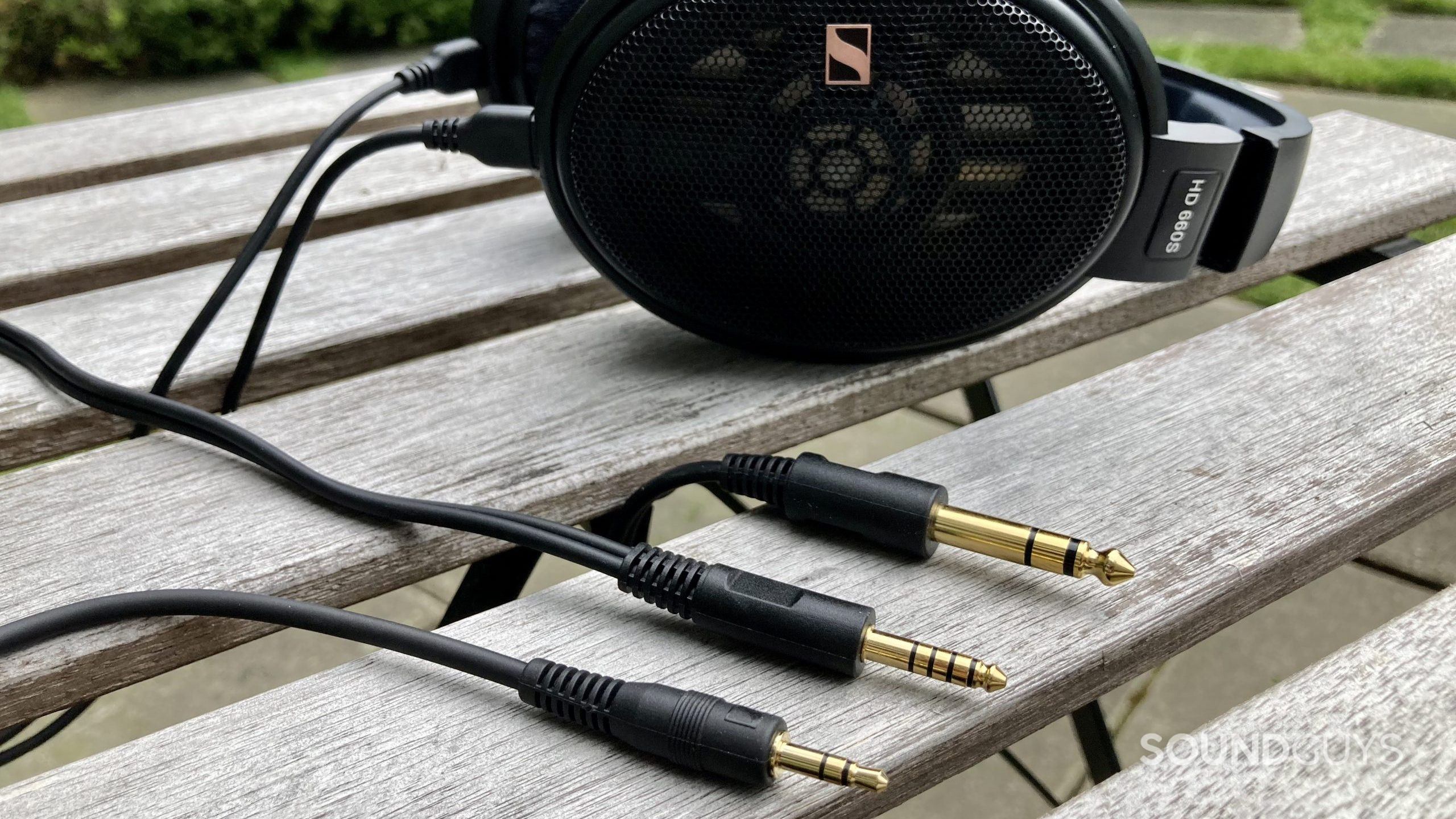
The difference between a balanced and unbalanced connection is in how the signal is treated on the way to your ears. Balanced connections will make use of a concept called differential signaling to supposedly tamp down noise introduced by interference from outside. In contrast, unbalanced connections will simply take the single-ended audio signal from your source without doing that. While it sounds like it might offer a huge improvement, decent shielding on your cables (which should be assumed at this point) should mean that there isn’t any significant difference between the two strategies as far as noise is concerned. For headphones, at least. If you don’t have a balanced connection, you really don’t have anything to worry about.
Are you sure you even want a portable music player?
Many people looking for portable music players are looking to use their favorite headphones with something they can carry and would drop the idea in a hot second if their smartphones could keep up. Now that the headphone jack is extremely rare in smartphones, it’s entirely possible that what some people are looking for isn’t a portable music player but a USB dongle.
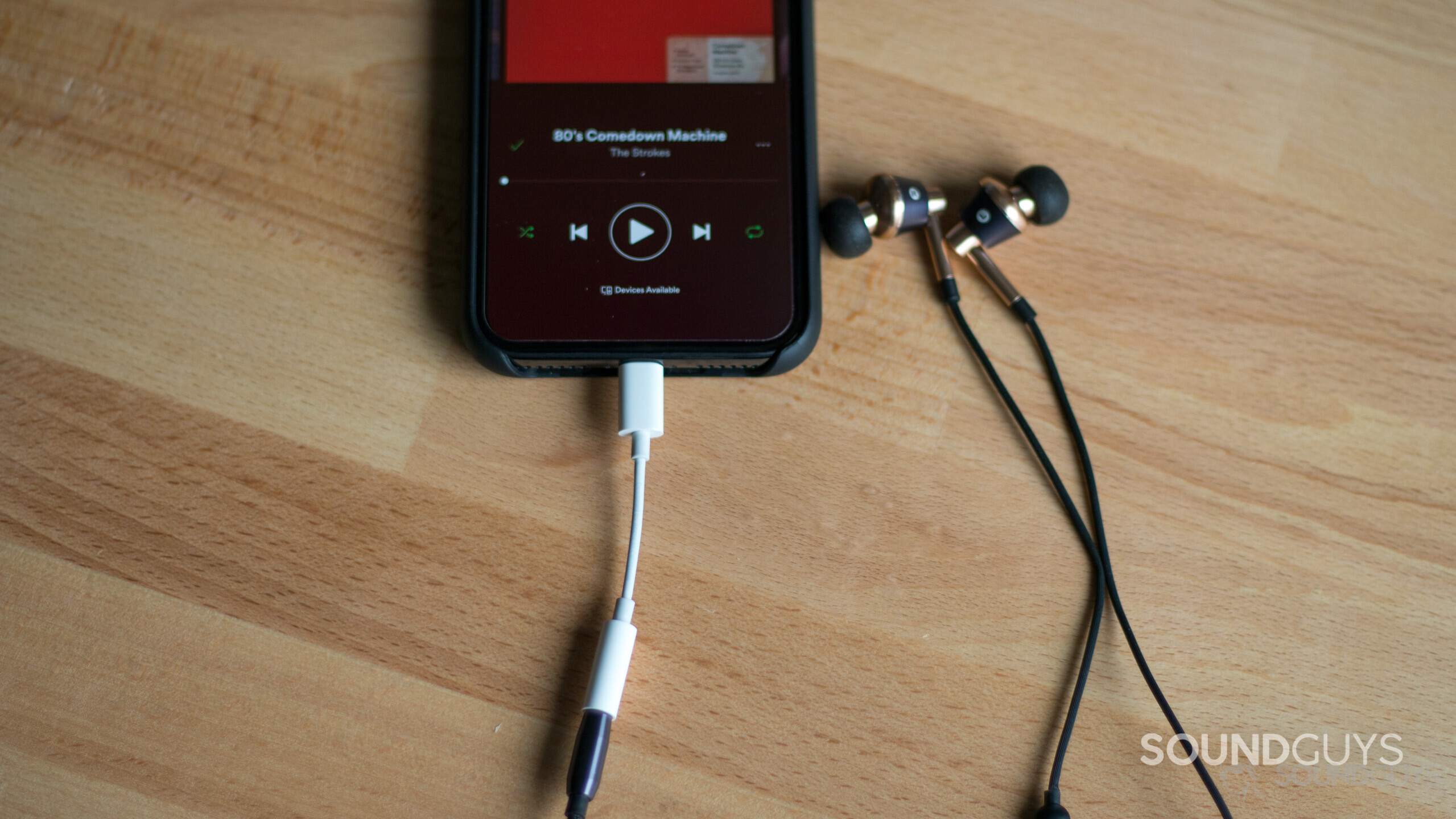
These devices are generally a lot cheaper than portable music players, and they allow your smartphone to be the music player you want it to be. As always, products like this are mainly spec-driven, so any will work so long as they can meet the power requirements of your headphones—and the only hookup necessary is to use the USB-C port of your Android phone. Apple users will need to specifically look for units that have lightning connectors—though 9 times out of 10, you’ll be happy with the Apple 3.5mm dongle.
There’s also no need to overspend here, as even the cheapest units on the market are often powerful enough to drive higher-end options like the Sennheiser HD 800 S and even some planar magnetic headphones like the HiFiMan Sundara without any trouble. It’s one of those situations where the tech behind this sort of thing has gotten so good that it’s a non-issue at this point, and features are going to be what differentiates the models—not performance.
Why would you get a portable music player instead of using your phone?
Now that the headphone jack has disappeared from smartphones, there’s a small but vocal segment of music lovers that need a way to use their wired cans that isn’t tied to a computer. In fact, I’m one of these people. I often find myself traveling around with dubious access to the internet, and streaming access is poor at best. Ever drive across the great plains? Not so great cell reception there, is it?
It's one of those things that you'll likely never need—until you do.
While you could absolutely load up your phone with downloaded songs, you’re then fighting space issues if you don’t have a microSD card slot—something that is also going the way of the dinosaur. Even though this is mainly a problem for people who listen to higher bitrate files to the exclusion of all else, it’s still a concern for those who fill their phone’s storage with other things, like movies, photos, or apps.
Having a portable audio player on hand will allow you to not only offload the responsibility for your music playback onto a device that isn’t hamstrung by your data connection (or storage) but there are a number of other capabilities you can unlock. For example, smartphones aren’t amazing with high-end headphones. Still, a portable audio player with a high-current output can handle just about any headphones you want in your hotel room, cabin, or other destination.
What are some alternatives?
Of course, our impulse to prioritize function and cost above all other concerns may not be what you’re looking for, or maybe you just want something that fits your niche a little better. That’s fine! Here are a few other models that you can check out:
- Hidizs AP80 Pro X: Well received upon its release but is larger and doesn’t do much to set itself apart from the M0 Pro. It’s still a decent unit, though.
- Astell & Kern KANN Alpha: a pricy unit, this product prioritizes raw output power. If you have headphones that just can’t get loud enough with other products, this is pretty much the portable that’s most likely to satisfy you.
- iBasso DX240: Think the DX170 but with a bigger battery and more storage capacity.
- Sony NW-A306-B: A straightforward music player that undercuts the high-end in price but falls short when it comes to power output.
- Sony NW-ZX507: Sony’s recent attempt to make a powerful portable. 100+mW output means overkill for most headphones at normal listening volumes.
- FiiO M11 Plus: This product is much like the M11S but with a bigger battery and higher output.
This list is not exhaustive and will expand as we get to experiment with new products as they are released. However, this is a decent cross-section of what’s available and worth your money.
The best portable music players: Frequently asked questions
Yes, portable music players are still available, catering to audiophiles and those who don’t want to rely solely on smartphones, especially since many have ditched the headphone jack.
Absolutely. Brands like Astell & Kern, FiiO, and Sony offer dedicated portable music players with various features to suit different needs and budgets
Apart from your phone, you can listen to music on portable music players, laptops, tablets, and dedicated home audio systems.
A portable music player with storage options allows you to load your library and listen without needing an internet connection or phone.
Smartphones largely replaced iPods for most consumers, but portable music players have evolved to cater to audio enthusiasts who require higher-quality sound and features.
Yes, MP3 players are still available, but they often come with additional capabilities, such as high-resolution audio support and streaming options.
An iPod is a specific brand of MP3 player made by Apple that often includes extra features like a touchscreen, apps, and ecosystem integration. MP3 players, generally speaking, can be from various manufacturers and may lack these additional features.
Thank you for being part of our community. Read our Comment Policy before posting.